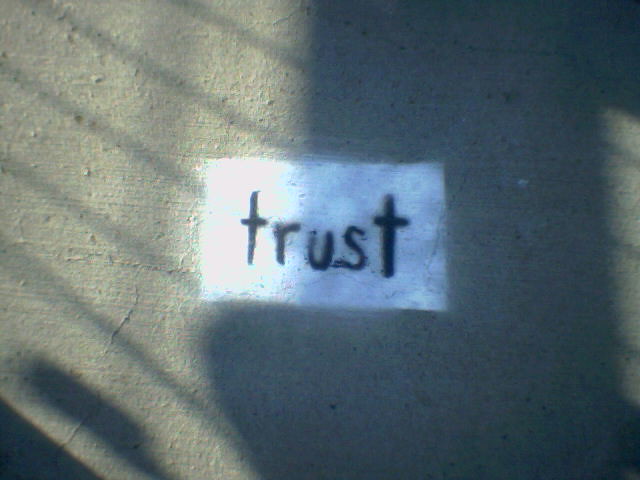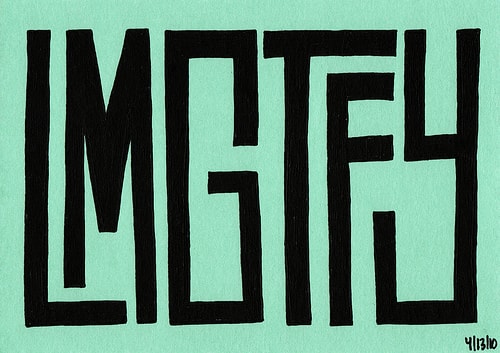Your consciousness constructs the expansion of facts
I’m a dreamer and a skeptic. As a teenager, I remember being fascinated by the Amway promotional materials given to my parents, dreaming (like so many MLM victims) of the good life, then sitting at my desk and doing the math. When I walked to the living room and shared my findings during the pitch to my parents, the Amway visitors were not pleased at all.
My skepticism continues around gurus, the fortunate few who have built lucrative businesses around their products and ideas. Deepak Chopra is a big one, and my impression was always that his teachings were hollow.
Imagine my thrill when I stumbled on Wisdom of Chopra, a website that generates Chopra-esque quotes. They sound like science, sounds like sage wisdom, but do the words actually mean anything?
The Role of Skepticism
Inspirational words are intended to help us dream, but wistful dreaming can lead to trouble.
Skeptics have a bad reputation. They are the Debbie Downers in our lives. The stubborn naysayers. That’s not all skepticism is.
Skepticism helps us sift the good from the bad. It helps us test hypotheses, to really unearth what works. And in the case of gurus, it helps us avoid expensive folly.
Let’s sift through some of the gems and folly from the quote generator:
Innocence is the womb of dimensionless success
It certainly is a womb of success for those who prey on innocence. And yet, while we have our guard up for the charlatans of the world, it becomes ever more important to retain innocence and wonder and creativity and love.
Your heart experiences positive experiences
I certainly hope so. Both my anatomical heart and my metaphorical heart thirst for the positive.
Making tea expresses visible creativity
Tea anyone? I can imagine a guru rolling out a bespoke line of teas using quotes like this. If you’re not drinking enough of it, you won’t ever reach your creative potential.
Information is the path to the progressive expansion of truth
Um, as long as that information is not corrupted. There are too many sheep following dangerous leaders. Folks whose brains have been infected with false facts often peddled by the right wing. We need more skepticism around sources of information.
The secret of the universe exists as exponential positivity
All I imagine when I read this is alarm bells ringing louder and louder as a nuclear power plant melts down. Or someone stubbornly insisting on “looking on the bright side” in the midst of his life falling into tragedy. It’s not just positivity, it’s exponential!
I’m more into insightful positivity than exponential, thank you very much. I’ll take empathetic mourning in the service of healing over the nuclear meltdown positivity, please.
Unleash the Dreamer
What do fake Chopra quotes have to do with peak performance and taking on ambitious goals?
Everything.
For all but the most privileged, life is about overcoming setbacks. Our mental game is what keeps us moving forward. We become powerful by being able to transform the weird into something useful or even inspirational.
We’ve all seen the inspirational photos and quotes that champion athletes put on their walls leading up to big competitions. In the end, though, the inspiration is not in the words but with us. We give the words power, and the power changes with each reader of the words.
One of the reasons we partner with coaches is that they help us find the words and keep us connected to what inspires us. They remind us that we are greater than we believe. They hold us accountable to our words. They strengthen our skill at getting through discomfort in order to generate velocity toward what matters.
Therefore…Your desire is reborn in visible potentiality
Skeptics have a bad reputation because we perceive them as being only skeptical. We imagine them having no capacity to dream. As we navigate a tough and often brutal world, it’s important to stay connected to inspiration.
Words mean things. And we can create meaning out of anything we encounter, including words. So while these fake quotes might be funny or scary or even insipid on their surface, they also offer an opportunity to interpret them for our own purposes. My cynical takes on the fake quotes could have been inspirational instead.
Maybe “making tea unfolds through nonlocal actions” has nothing to do with tea for you. Maybe it shakes you out of dwelling on neighborhood gossip and reconnects you to a larger purpose.
Maybe “greatness illuminates the flow of happiness” is not about traditional ideas of happiness or greatness but simply finding a way to happily go grocery shopping and get the laundry done
What if “nature is inside the light of fulfillment” has no other meaning than reminding you that there’s a park nearby and it might be nice to take a silent walk on a cold winter night, or feel leaves ruffling past your feet as you walk, or hear birds chirping as spring unfolds?
We get to use words as we please. We get to be fueled by a word or phrase even if no one else understands it.
We get to remake each moment, transform the tough ones to our purposes. We’re not always as skilled as we’d like, and sometimes it feels like an impossible goal. But, the possibility is there, even if it is to chuckle at some fake Chopra quotes during a rough day at the office.
Don’t take it from me. Be discerning and intelligent. Be blindly loyal to no one. With healthy skepticism AND an openness to imagination and dreaming. And, just as I share a bit of myself here in the hopes that you will be skeptically inspired, please share a bit of yourself with those around you.







